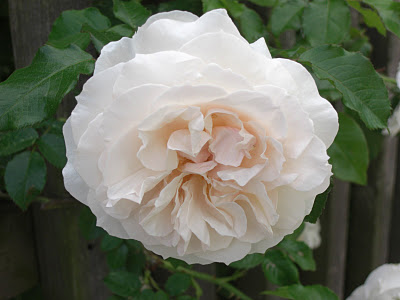At the very end of Gurdjieff's posthumously published "Views From the Real World," there is a list of aphorisms.
Each one is a meaty little piece of advice about how to conduct our inner work. Most of them seem, on the surface, to say something rather straightforward. Not only that, most of us in the Gurdjieff work are quite familiar with them and have probably been hearing them -- or versions of them -- for many years.
So we assume we know what they mean. Of course, we're well behaved, politically correct little Gurdjieffians, so if asked, we'd reflexively deny that. It's the stock answer: of course we don't understand. Everything is a mystery, yada yada yada.
The underlying part of us that takes things in always makes assumptions, however, and one of the first things that it always assumes is that it knows what's going on. That happens so automatically that that part is telling us we know what's going on, even while our mouth is saying to other people that we don't know what's going on.
Consider it thus, fellow seekers:
We think we understand that we don't understand. This is a corollary to Andre Enard's comment that "We dream the dream we are awake."
Anyway, given the propensity of Gurdjieff's material to reveal unexpected depths when pondered in detail, I thought I'd take a closer look at some of the aphorisms.
I hit a wall almost immediately with the very first aphorism.
"Like what it does not like."
We would generally assume that this means that we should go against our habits, our mechanicality. ...But conundrums immediately rear their ugly heads. If it is our habit to seek pleasure, does this aphorism mean that we should become accustomed to seeking pain? Surely, it is not a call to masochism. Simplistic explanations, in other words, don't serve the aphorism at all.
Peeling back the layers of the onion, we discover that this saying is more than an aphorism (i.e., a terse statement of truth.)
It's a koan.
What is "it?" Do we know what that is?
What is it to "like" something?
What is it to "not like" something?
All of these questions have to be examined carefully before we might presume to begin to understand the direction that the aphorism is pointing us in.
Once we begin to do that, we see that the aphorism is asking us to examine how we are in the present moment, to study the inner condition and see what we are attracted to. Before one can like what it does not like, one has to see it and see it liking. So contained within this kernel is the seed of the separation of self from self, and the act of seeing. In other words, the aphorism points in the direction of having an immediate attention to how we are.
"Well, duh," you are probably intoning by now, "that's so obvious. That's what everything is all about in this work anyway."
...But how obvious is it, really?
How often do we have the ideas, but not the attention?
The attention to life isn't composed of ideas. Ideas are the policemen; ideas are the institution; ideas are the property of the government and the state.
The attention is something else again. Real attention comes from a certain subtle kind of inner energy that does not belong to the government or the state.
The attention is an insurrection. An effort to defeat the form and find something much, much larger than the idea.
Something that lives.
Several months ago I heard Peter Brook assert that our very conception of the work itself-- all of the ideas that we have about it, everything that we think about it -- are our very greatest obstacle to inner work. Our conceptions, or, perhaps more properly put, our preconceptions, stand directly in the way of our working. And it is even the very idea that we know what working means or what work is, or that we know what we are, and what we are doing, that defeats us.
The effort at attention is perpetually hidden within, encapsulated by, the ideas, just as ou own attention is hidden within the act of what we call mentation. And this aphorism is a classic example of that. It reminds me once again of Paul's letter to the Romans, in which he advocates a circumcision of the Spirit.
Only by discarding the external portion of our spiritual quest -- the coarse and excess flesh of the idea, the form, that which insulates and conceals the inner reproductive apparatus of attention-- can we hope to progress.
So there is my little thought on this particular aphorism, for today.
Going forward, I plan to study some of the other aphorisms and comment on them a bit. Not excessively or extensively; after all, I would prefer to touch gently on the subjects, not pound them with a ball peen hammer.
In the meantime, I'll share one other thought that I had this morning.
Over the course of my life, I have had numerous occasions to deal directly with people who have crippling thinking disorders. By thinking disorders I mean disorders of the associative center that prevent them from organizing their thoughts in such a way as to function in good relationship to ordinary life. There are a lot of psychological terms for these disorders, such as bipolar disorder, schizoaffective disorder, and so on.
Regrettably, I know several of them up close and very personally. The diseases are complex and debilitating; they cause terrible problems both for the individuals that have them and the people around them.
I bring all this up because the associative center frequently gets a bad rap in the Gurdjieff work. People speak of it disparagingly, as though the things that came out of it were all crap. We talk about associative thinking as though it were worthless, and often all but sneer when the subject comes up.
This is a bit typical of all of us. We don't appreciate how important the ordinary parts of us are. All you need to do is spend some time around one person with a disorder like this and you will begin to get a whole new appreciation of associative center, just how important it is for ordinary functioning, and just how grateful we ought to be that we have one at all, let alone one that functions well for us.
If we don't learn to value these "devalued" parts, we are not balancing our inner life. Every part of us that helps us function -- even a mechanical one -- is our absolute friend and confidant, and to be treated with love and respect, not like a second-class citizen that we are only putting up with until the cosmic consciousness we wish for shows up.
Learning this lesson is part of right self-valuation. Be glad you have a machine. Be glad it works okay. Thank God every day for that.
It is the beginning of appreciating life for what it is, instead of what we wish it were.
May your roots find water, and your leaves know sun.
















